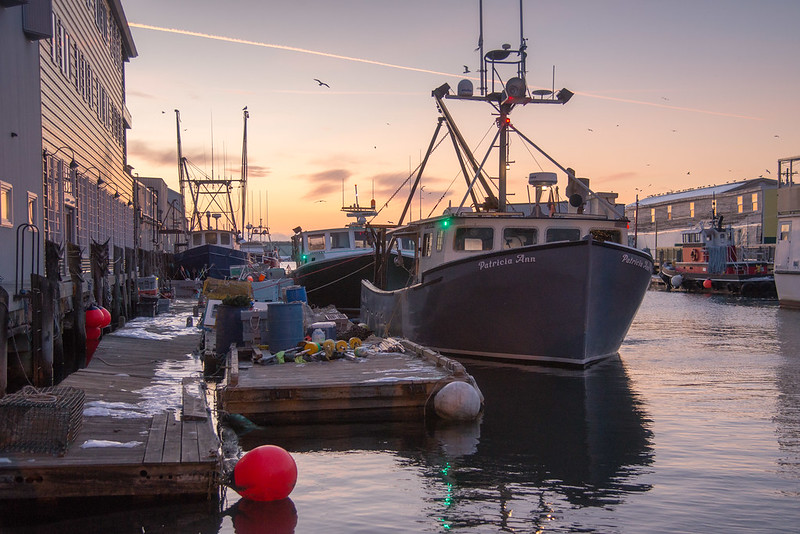
From Sea to Table: Climate Resilience & Maine's Ocean-Sourced Food
Program Details
Funders
In person
Members: $50
Nonmembers: $75
Zoom
Members: $25
Nonmembers: $50
Join the Maine Climate & Environmental Funders as we continue to explore important intersectional climate and environmental issues through our network convenings. Maine's connection to the ocean is an intrinsic part of the state's identity as well as a primary economic driver - the future of which is under threat due to changing climates. This conversation will be focused on Maine’s blue economy and the integral role of ocean foods within the broader food system. Together we will explore the significant impact of climate change on Maine’s ocean-sourced foods, including shifts in availability and changes in marine ecosystems. You'll gain a clear understanding of how these challenges impact broader food system priorities and discover how they affect Maine’s economic and climate goals.
The convening will highlight key organizations working to address these issues and will provide space for funders to explore actionable ways to support initiatives in this and related sectors, engage with practitioners and peers, and deepen knowledge about the intersection of climate change and ocean food sustainability.
About the Network
Created in 2023, this network is the result of a merger between the Climate Change Funders Forum and the Environmental Funders Network. The Maine Climate & Environmental Funders Network (MCEFN) operates at the confluence of environmental concerns toward the goals of shared learning, building connections, and engaging in collective action. MCEFN’s programmatic work is guided by three priorities: civic engagement and democracy; equity, justice and power; and communications and narrative change. Under these priorities, together we are exploring the green/blue economy, land conservation, climate justice, and other issues impacting Maine communities. This group also explores urgent and emergent issues as it relates to climate and the environment.
Through strategic convenings, exploration of intersectional topics, and coordination of relevant and important information, the network creates value as “more than the sum of our parts.” We are actively seeking funders to participate in program development and to join the Advisory Committee.
Speakers
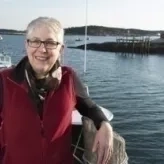
Robin Alden
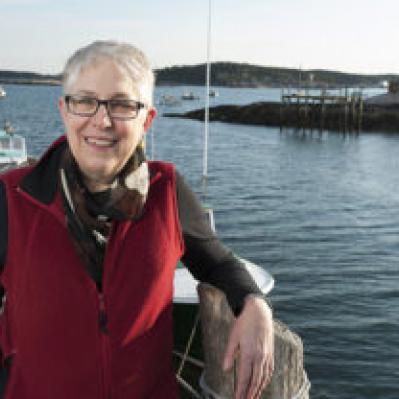
Robin Alden
Robin has worked in sustainable fisheries since she moved to Maine in 1971. She retired as Founding Executive Director of Maine Center for Coastal Fisheries in 2018. Robin was Commissioner of Marine Resources during the 1990s. Prior to that, she founded and ran Commercial Fisheries News for over 20 years. Robin also co-founded and managed Maine Fishermen’s Forum, initially while working with Maine Sea Grant, all part of her mission to further science and effective policy by bridging the gap between fishermen’s on-the-ground knowledge and academia. A graduate of University of Maine, she has been involved in a number of collaborative efforts, including founding the Downeast Fisheries Network. She is the recipient of the Visionary Award from the Gulf of Maine Council, a 2017 Benchley Award “Hero of the Seas” award, and was named a 2016 White House Champion of Change for Sustainable Seafood. Robin and her husband, Ted Ames have two grown sons and live in Stonington.
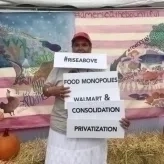
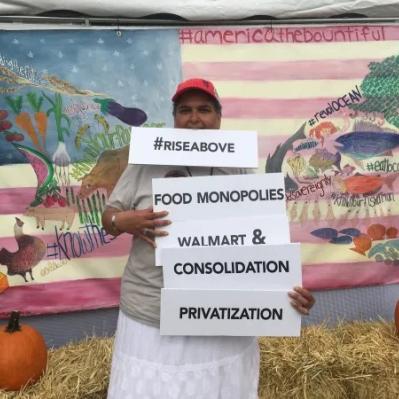
Niaz Dorry
Niaz Dorry is the executive director of both the North American Marine Alliance and the National Family Farm Coalition. Longtime Coordinating Director of the North American Marine Alliance (NAMA) and former NFFC board member and treasurer, Niaz Dorry was named Executive Director of NFFC in May 2018 we entered into an innovative shared leadership model with NAMA. This new model put Niaz at the helm of both organizations.
Prior to joining NAMA, Niaz was Interim COO for the Healthy Building Network, helping to apply environmental justice principles to building materials, at a time when HBN was working on homes in the Gulf of Mexico in the aftermath of Hurricanes Katrina and Rita. She worked with Greenpeace for 11 years as a toxics and environmental justice campaigner. During that time, she spent two years in Ohio fighting with communities along the Ohio River Valley against the world's largest toxic waste incinerator. It was during her time at Greenpeace that she began working with community-based fishermen. The span of her work has made her well aware of the problems facing rural communities through concentration, lost markets, crumbling infrastructure, and diminished health care.
Time Magazine named Niaz as a Hero For The Planet for her work. Niaz’ work and approach have been noted in a number of books including Against the Tide; Deeper Shade of Green; The Spirit’s Terrain; Vanishing Species; The Great Gulf; Swimming in Circles; A Troublemaker’s Teaparty; Zugunruhe: The Inner Migration To Profound Environmental Change; Raising Dough: Public History and the Food Movement; The Complete Guide to Financing a Socially Responsible Food Business; Blue Urbanism: Exploring Connections Between Cities and Oceans; and, The Doryman’s Reflection.
She is a graduate of the Rockwood Leadership Institute’s Leading From Inside Out and the Institute for Nonprofit Practice.
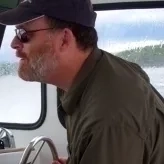
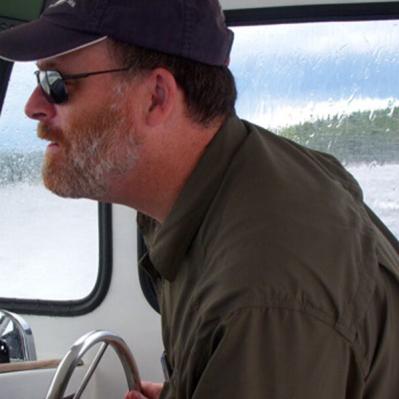
Mark Spalding
Mark J. Spalding is an expert on international ocean policy and law, blue economy finance and investment, and coastal and marine philanthropy. He has been the President of The Ocean Foundation since 2003. Under his leadership, it has grown exponentially from a $200,000/year to a $15 million/year budget, as he prioritized steering the human relationship with the sea to a brighter future through diverse, carefully chosen strategies and projects. Mark also serves on the Sargasso Sea Commission. He is a Senior Fellow at the Center for the Blue Economy at the Middlebury Institute of International Studies and an Advisor to the High-Level Panel for a Sustainable Ocean Economy. In addition, he serves as the advisor to the Rockefeller Climate Solutions Fund, the Rockefeller Global Innovation Strategy, and the UBS Rockefeller and Kraneshares Rockefeller Ocean Engagement Funds (unprecedented ocean-centric investment funds). Mark is a member of the UNEP Guidance Working Group for its Sustainable Blue Economy Finance Initiative. He is an Advisory Council Member for the African Marine Environment Sustainability Initiative. Mark is a co-author of the “Transatlantic Blue Economy Initiative,” a joint project of the Wilson Center and Konrad Adenauer Stiftung. Mark designed the first-ever blue carbon offset program, SeaGrass Grow. He was recently appointed by the White House (CEQ) to the Carbon Capture, Utilization, and Sequestration (CCUS) Permitting Task Force for Federal Lands and Outer Continental Shelf.
From 1994 to 2003, Mark was the Environmental Law and Civil Society Program Director and Editor of the Journal of Environment and Development at UCSD’s Graduate School of International Relations & Pacific Studies (IR/PS). He was a research fellow at UCSD’s Center for U.S.-Mexican Studies, a Sustainability Institute – Donella Meadows Leadership Fellow, and a SeaWeb Senior Fellow. From 2018 to 2023, he served as a member of the Ocean Studies Board and the U.S. National Committee for the Decade of Ocean Science for Sustainable Development, both of the National Academies of Sciences, Engineering, and Medicine (USA). He holds a B.A. in history with Honors from Claremont McKenna College, a J.D. from Loyola Law School, a Master in Pacific International Affairs (MPIA) from IR/PS, and a Wines of the World Certification from Cornell University. He graduated from the British School of Motor Racing and the Porsche Track Experience Precision Course. Mark’s deep connection with the ocean began as a young boy growing up in the Central Valley of California; each time he crested the coastal range and the Pacific came into view, it was like a breath of fresh air.